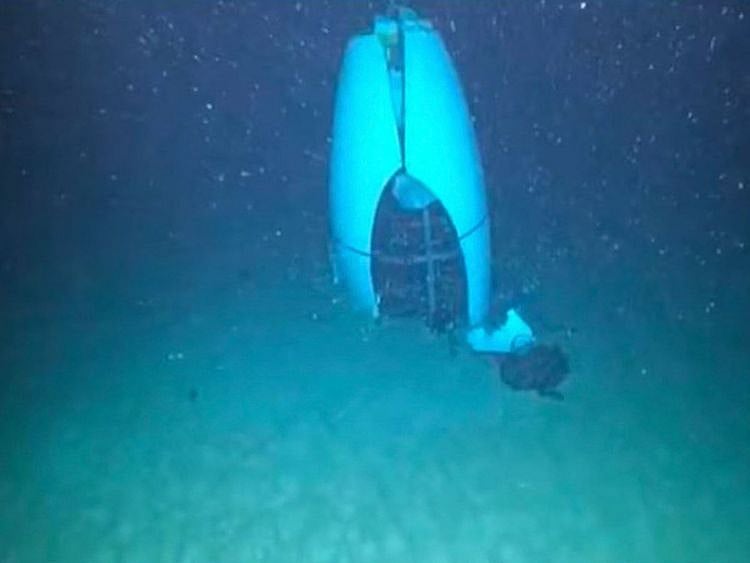Titan sub had to abort a dive days before fatal implosion: testimony
Former OceanGate scientific director's testimony came as the US began a 2-week hearing

New York: The Titan submersible had to abort a dive just days before the implosion that killed its five passengers as they explored the wreck of the Titanic, an ex-employee of the company that operated the vessel testified on Thursday.
The testimony from former OceanGate scientific director Steven Ross came as the US Coast Guard began a two-week hearing on Monday into the 2023 catastrophe, which will feature evidence as to what went wrong and whether physical or design failure contributed to the accident, which garnered worldwide attention.
Ross told the hearing that the earlier dive had to be aborted due to a valve malfunction that left at least one passenger hanging upside down, and took "considerable time" to correct.
Also Read
Titan sub tragedy: Presumed human remains and shattered Titanic submersible returned to shoreThe tragedy of the Titan sub: What is a 'catastrophic implosion'?Titanic sub tragedy: The implosion was so fast that victims 'never knew it happened'Rescue teams search for missing submersible near Titanic wreckHe said that when the privately-owned and operated submersible surfaced during that dive, it tilted so its bow was pointing upwards at a 45 degree angle.
Ross, who was inside along with four other passengers, explained that "there's nothing to hold on to inside this submersible."
The pilot that day - OceanGate CEO Stockton Rush, who died in the implosion days later - "crashed into the rear bulkhead," Ross said.
"The rest of the passengers tumbled about. I ended up standing on the rear bulkhead," he continued.
"One passenger was hanging upside down, and the other two managed to wedge themselves into the the bow end cap."
He said no one was injured in the incident, but that inside the cramped and confined space "it was uncomfortable and unpleasant, and it took considerable time to correct the problem" - at least an hour, by his reckoning.
Rush, he said, was "upset" by the incident.
Rush and four passengers descended in the submersible on June 18, 2023, to observe the wreck of the Titanic.
But contact was lost less than two hours after their departure. A vast rescue operation was launched in hope that the passengers had simply lost power and were drifting helplessly in the ocean's depths.
However, within days it became clear that the sub had been destroyed in a cataclysmic implosion.
Victims are presumed to have died instantly in the disaster, which occurred under the crushing pressure of the North Atlantic at a depth of more than two miles (nearly four kilometers).
Apart from Rush, the four others on the Titan were British explorer Hamish Harding, French submarine expert Paul-Henri Nargeolet, Pakistani-British tycoon Shahzada Dawood and his son Suleman.
The family of Nargeolet has taken OceanGate to court, claiming $50 million for negligence.
A debris field was found 1,600 feet (500 meters) from the bow of the Titanic, which sits 400 miles off the coast of Newfoundland, Canada.
The Titanic hit an iceberg and sank in 1912 during its maiden voyage from England to New York, with 2,224 passengers and crew on board. More than 1,500 people died.
Sign up for the Daily Briefing
Get the latest news and updates straight to your inbox
Network Links
GN StoreDownload our app
© Al Nisr Publishing LLC 2026. All rights reserved.